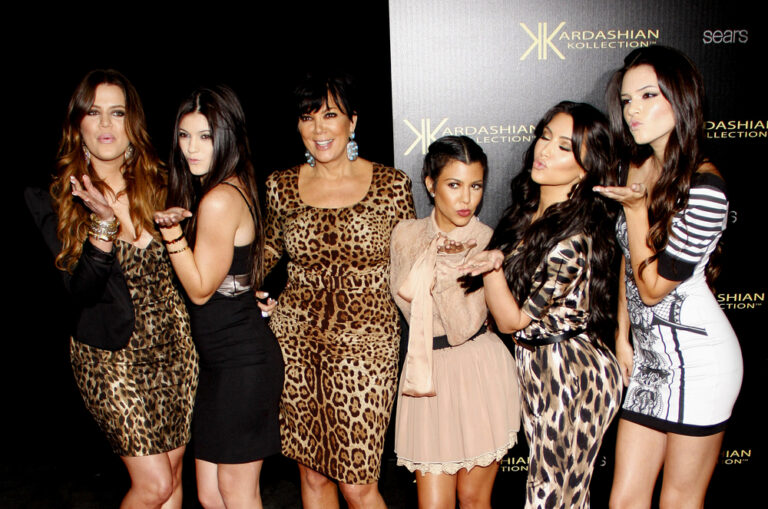
fciwomenswrestling.com article, lionsgate divergentthemovie.com photo credit
Spot on and reflective of the times, the elegant hit maker Jackie DeShannon’s thinking melody What The World Needs Now Is Love Sweet Love was a masterful hit and enhanced the cult classic film Bob & Carol & Ted & Alice.

Bob & Carol & Ted & Alice is a 1969 comedy-drama film directed by Paul Mazursky, written by Paul Mazursky and Larry Tucker, who also produced the film, and starring Natalie Wood, Robert Culp, Elliott Gould, and Dyan Cannon.
The storyline goes, after a weekend of emotional honesty at an Esalen-style retreat, Los Angeles sophisticates Bob and Carol Sanders (played by Robert Culp and Natalie Wood) return to their life determined to embrace complete openness.
It raised the question, no matter how enlightened, can a couple truly have an open marriage?
The film was a cultural game changer.
Now if we could only get another artist with a penetrating style who could pen and sing another masterpiece reflective of our times that expresses What Our World Needs Now Is Empathy Sweet Empathy, the world would become a better place.
One such Mega Star who is demonstrating empathy and trying to make the world a much cleaner and safer place is the incredibly beautiful and talented Shailene Woodley.
Through her acting and social activism, Shailene has made her mark and is continually getting the world’s attention.
As reported at mstarsnews.musictimes.com on November 22, 2016, “Lionsgate has officially called off “Divergent: Ascendant” and announced it will become a television movie instead. While this was tough news to handle for the cast and crew of the movie, life has to go on.

Fans of the “Divergent” series were also devastated to hear the news especially learning that the original cast Shailene Woodley and Theo James will not be on the TV movie version. Shailene has expressed her frustration about the decision but respects it being a professional Hollywood actress.
But Shailene is far from any other Hollywood actress. As many actresses are busy with product endorsements and cast calls, she is currently standing at Standing Rock in freezing temperatures, trying to save the Dakota Access Pipeline.”
There sure is a lot in that message so let’s dissect it a little.
First of all, Shailene is an incredible, beautiful talent.
Our luminary is an American actress who first received attention as Amy on the ABC Family television series Secret Life of the American Teenager (2008–13) and rose to stardom in various popular and critically acclaimed films such as The Descendants (2011), The Spectacular Now (2013), The Fault in Our Stars (2014), The Divergent Series (2014–) as Beatrice “Tris” Prior and Snowden (2016).
Shailene graduated from Simi Valley High School.
As shared in imdb.com, “When Woodley was four years old she began commercial modeling. Acting roles followed, and she made her screen debut in 1999’s Replacing Dad (1999). More parts followed in The District (2000), The O.C. (2003) and Crossing Jordan (2001), amongst others. When Woodley was 15, she was diagnosed with Idiopathic Scoliosis and wore a chest-to-hips plastic brace for two years, which proved a successful treatment.”
As you can see, she has come a long way and overcome much.
Maybe that is why she appears to be so empathetic to the causes of others and the needs of the earth.
She strongly opposes the construction of the Dakota Access Pipeline, a US$3.87 billion conduit being built by Dakota Access LLC. This major pipeline project that has plans to run 1,134 miles is claimed to infringe tribal sovereignty.
Those opposed to the pipeline point out that water contamination as well as environmental pollution is imminent.
Shailene encourages people to stand together with the Sioux people of Standing Rock Reservation and for clean water that future generations will be able to enjoy.
In terms of her empathy for the environment she was quoted at IMDB encouraging, “All it takes is to pick up that one piece of trash you pass every day on your way to work. Or to turn the water faucet off when you’re brushing your teeth from afar. Or to compost. Or to buy 100% post-consumer recycled paper. Or to utilize vintage stores and secondhand markets. Or to fully devote yourself to only buying vegetables from local sources. It is remarkably easy to incorporate sustainable choices into our everyday, busy lives.”
She certainly seems to be aware of what the world needs now.
Love sweet love, always.
Now if we could just find another artist to pen a hit record about empathy.
We have a visiting writer who is also a doctor who, pen in hand, will share his thoughts on why the world needs empathy.
Empathy – Its Role in Life

By Dr. Pran Rangan Submitted On September 05, 2016
Generally, we define empathy as the ability to sense emotions of others coupled with the ability to judge what someone else might be thinking and feeling. In common parlance, empathy is most often defined by the metaphors: ‘standing in someone else’s shoes’ or ‘seeing through someone else’s eyes’
Psychologically speaking, there are basically four kinds of empathy in humans, which are self-empathy, mirror (emotional) empathy, cognitive empathy and compassionate empathy as described below:
- Self empathy – Self-empathy is the act of giving ourselves empathy, listening to our own feelings and unmet needs with compassion and understanding. This does not make the problems go away, or magically make all our needs met. But it does help us to feel connected and centered within ourselves. It can also be a tool to express ourselves with more honesty. Though it doesn’t make problems go away, it makes it easier to endure them.
- Cognitive empathy – It means knowing how the other person feels and what they might be thinking. It is very helpful in negotiations or motivating people. It has been found that people who possess good cognitive empathy (also called perspective taking) make good leaders or managers because they are able to move people to give their best efforts. But there can be a downside to this type of empathy. If people, falling within the “Dark Triad” – narcissists, Machiavellians and psychopaths – possess ample ability of cognitive empathy, they can exploit others to the extent of torturing them. Such people have no sympathy for their victims and expertly use their ability to calibrate their cruelty.
- Emotional empathy – It means feeling physically along with the other person as though their emotions are contagious. It makes one well-attuned to another’s emotional world, which is a plus in any of the wide range of callings. There is a downside attached to emotional empathy that occurs, when people lack the ability to manage their own emotions. This can be seen as psychological exhaustion leading to a burnout as commonly seen in professionals. The purposeful detachment cultivated by those in medical profession is a way to void burnout. But when the detachment leads to indifference, it can seriously hamper the professional care.
- Compassionate empathy – Also commonly referred to as empathic concern, this type of empathy not only means understanding a person’s predicament and feel with them but spontaneously move to help them, if needed. In fact, empathic concern is the vital ingredient of an empathic response in a given situation. It is the kind most required in people working as social volunteers.
Empathy – a basic trait –
Empathy is inherently present in humans to varying extents and, therefore, we are affected by another’s predicament differently. In fact, it is one of the basic traits of humans so much so that any one devoid of it strikes us as dangerous or mentally ill.
Females frequently score higher on standard tests of empathy, social sensitivity, and emotion recognition than do males.
Its inherence in humans can be established by the fact that how young children respond to the emotions of family members. Besides children, some household pets also express their worry, when the family members are in distress. The pets hover nearby and put their heads in their owners’ laps showing that even animals have empathy. Besides humans, many other species exhibit presence of empathy to a varying extent.
A compelling evidence for the presence of empathy in animals came from the following research. The researchers reported in 1964 in the American Journal of Psychiatry that rhesus monkeys refused to pull a chain that delivered food to themselves if doing so gave a shock to a companion. One monkey stopped pulling the chain for 12 days after witnessing another monkey receive a shock. Those primates were literally starving themselves in order to avoid causing hurt to other animals.
Role of empathy in life –
- Empathy plays great role in our life in almost every sphere. The skill of empathy, though we inherit it, can be cultivated, which plays a significant role in making us successful in those spheres. Role of empathy in the life of an individual is actually dependent on its conceptualization by the individual, which varies widely. Nevertheless, empathy acts to reflect what has been perceived and creates a supportive or confirming atmosphere.
- Empathy is a powerful communication skill that is actually underused by many. It allows one to understand thoughts and resultant feelings created by them in others. Empathy also makes one to respond to other’s feelings sympathetically so that they can win their trust, which promotes communication further. Our fear of failure, anger, and frustration suddenly drop away, allowing for a more meaningful dialogue and a deepening of relationships.
- Empathy is more than simple sympathy, which makes the individual understand others with compassion and sensitivity. That is why it is plays an important role in the workplace, where many people work together to achieve something of significance. It helps create deep respect for the co-workers, thereby fostering a harmonious atmosphere in the workplace.
- Similarly, empathy is helpful in our professional life because, besides facilitating communication, it makes us a sympathetic listener to our clients, whereby we are able to understand them better.
- Because empathy makes us able to communicate effectively and listen empathetically, we stand a better chance of making our personal and social relationships successful. In fact, empathy is capable of nurturing every kind of relationship we enter into or are in.
- As it is clear that empathy affects our life with far reaching ramifications, we should help our children to cultivate this trait so that they can become better human beings. Since empathy promotes pro-social behavior, it will help our children build close relationships, maintain friendships and develop better communities. Emotional intelligence has assumed great importance over the past twenty years as an instrument in developing an ability to work with our own and other’s emotions. One of the most important components of emotional intelligence skills is empathy.
Conclusion –
Undoubtedly, empathy immensely affects our everyday life. This trait will come in handy in situations, where we find ourselves trapped, because it will make us understand other’s perspectives.
Though we are born with this trait, it happens to be underused by many. As empathy is one of the most important skills to be practiced for success in everyday life, we should encourage our children to cultivate it.
Empathy is an inherent trait in humans but it is present in variable extent in us. That is why everyone doesn’t empathize to others to the same extent and in the same manner. Nevertheless, it plays a significant role in our day-to-day life, contributing extensively to our personal, professional and social success.
~ ~ ~
http://ezinearticles.com/?Empathy—Its-Role-in-Life&id=9517162
Article Source: http://EzineArticles.com/expert/Dr._Pran_Rangan/2322082
Article Source: http://EzineArticles.com/9517162
http://www.imdb.com/name/nm0940362/bio?ref_=nm_ov_bio_sm



